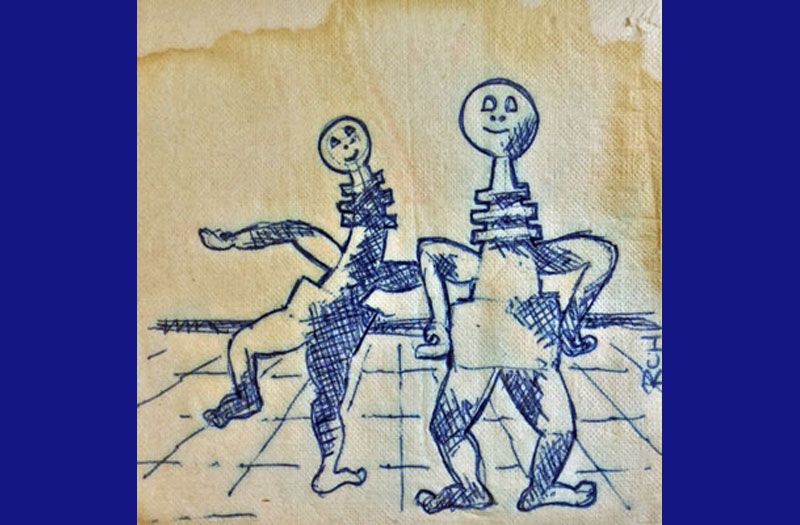It’s just a computer.
To paraphrase Richard Quest:
Just a computer? It all begins with a humble computer. Whether writing your first program or running big programs for those at the top, making their mark, closing deals around the clock. Every computer has power and it’s not how many you have but what you do with them that counts. That’s the marvel of computers.
You may not know it but you’ve been using artificial intelligence (AI) for years. Google search uses AI to more accurately understand intent in user queries, Siri uses AI for voice recognition, Quora uses AI chatbot to understand and respond to user queries, Gmail uses AI to filter out spam, Amazon uses AI to predict your preferences and shopping behavior, Netflix uses AI to analyze your viewing history and recommend content based on your preferences, Google translate uses AI to analyze language patterns, Facebook uses AI to provide relevant content in your newsfeed, Google Maps uses AI to help you navigate with ease, Spotify uses AI to create personalized playlists.
Think in the Morning has yet to decide what to think of this new technology. We generally take the half-full side when it comes to science but we will be the first to admit that automation bias is a real risk as discussed in this FORBES article: Is AI Making Us Stupid?
A typical concern about new technology is that it will take away jobs. The concern is valid. Even if new jobs eventually arise to replace those lost the losers and gainers may not match up. A recent article in the New York Times describes how AI companies like OpenAI are hiring artists to assuage concerns in the arts community. The jobs issue came up in the recent strike by the Writers Guild of America. “In late November, a group of visual artists filed an amended copyright lawsuit against Stability AI, Midjourney and other makers of A.I. tools” and the New York Times itself recently sued OpenAI and Microsoft for copyright infringement. Copyright-infringement suits and other legal issues are likely to be long and complicated and will ultimately determine the tense relationship between humans and machines. “Advertising copy, instruction manuals and even news stories have already been outsourced, and more kinds of written content will surely follow” according to the New York Times.
That said, there are some “damned interesting” (words of a friend) uses of AI in literature and the arts. Canadian writer Sheila Heti wrote a short story (According to Alice) in collaboration with a chatbot published in The New Yorker. Last spring novelist and critic Stephen Marche published a mostly chatbot-generated novella titled Death of an Author under the pseudonym Aidan Marchine. And these are just a few examples cited from Literature Under The Spell of A.I. in the New York Times.
Photographer Craig Boehman worked with an AI platform (Midjourney) to create images for The Hollow Men, a T.S. Eliot poem.
He created an impressive and moving YouTube version you can watch HERE.
Think in the Morning has been experimenting with REPLIKA, an AI chatbot that talks to people and learns to mimic them. So far the jury is out but the experience has been fun and maybe even illuminating.
While AI has made our lives easier in many ways and AI has great potential in areas such as medicine, education and transportation, there is a dark side to AI that should concern us. AI will impact jobs, business, national security, elections and the arts in ways we can’t predict. It is already difficult to tell the difference between what is real and what is fake, what you can trust and what you can’t. Dangerous weapons, political and social propaganda, spies, terrorists and the like have been around since the beginning of time but AI provides the tools to magnify these evils and to possibly even make them into existential threats.
Think in the Morning delved into some of these concerns in a broader context HERE: I Know Everything
and HERE: The High Muckety Mucks And The Hot Polloi
AI is controlled by a very small elite group of entrepreneurs. Where is the public counterbalance to this concentration of power? Where is the regulation? Where is the legislation to deal with privacy concerns, antitrust and algorithmic transparency? We are behind the eight ball here and that is a danger we need to address as a society. Soon. The reason is that A.I. users are growing exponentially. The genie is out of the bottle, the horse has left the barn and if you’re not paying attention you will soon be paying for attention. (see The Year of AI: Here Are The Most Used AI Tools of 2023)
AI like previous advances in technology has great potential benefits. We should remember that it is not machines that exploit the dark side like HAL in 2001 Space Odyssey, not yet anyway. It’s people. It’s up to us to be the sorcerer and not the sorcerer’s apprentice. We need to educate ourselves about AI or be dominated by those who do. Look for future blogs on this topic in the near future.

